Inspired
2023 Goalkeepers Report: How Innovation & “Baby Knowledge” Can Reverse Stalled Progress and Save Mothers & Babies
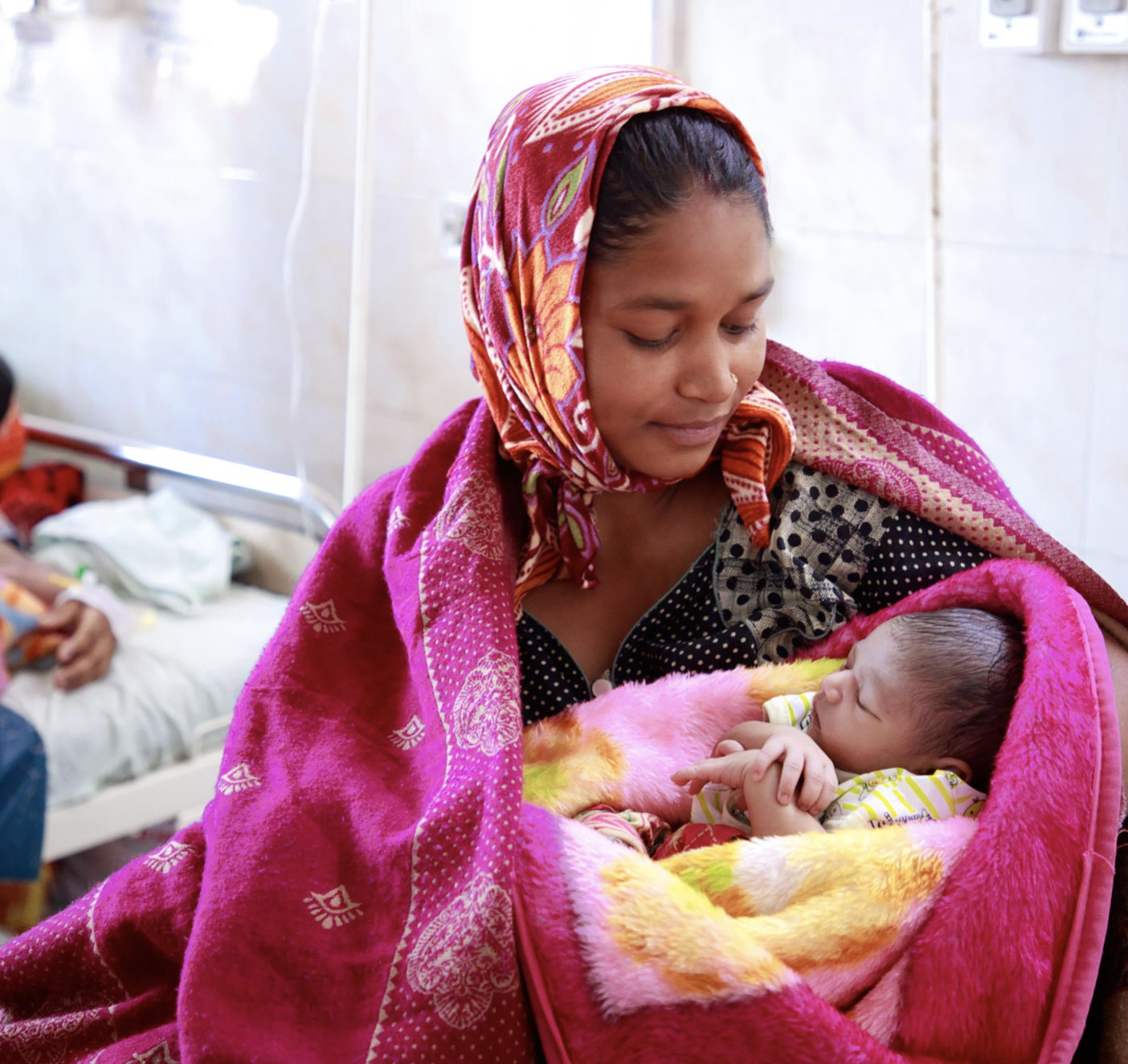
Photo Credit: Gates Foundation
Every two minutes, or 800 times a day, a mother passes on due to complications during childbirth. When this happens, her family and the world did not just lose her, but all too often, we lose her child as well. The 2023 Goalkeepers Report by Melinda French Gates and Bill Gates, Co-Chairs of Bill & Melinda Gates Foundation, reveals that the chances of a baby reaching their first birthday drops to less than 37% when their mother dies during childbirth.
The report is an urgent call on the world to take necessary action to save 2 million lives – nearly 1,000 mothers and babies daily between now and 2030. It noted that global health experts, having learned more about mothers and babies in the last decade than in the century preceding that, believe that the breakthroughs recorded can be used to fight the epidemic of maternal mortality, not only on low- and middle-income countries (LMICs), but globally, including in the United Kingdom and the United States, where death rates for Black mothers have doubled since 1999.
The Stunning Reversal
The report highlights that when the world set ambitious targets at the start of the millennium, remarkable progress in maternal and neonatal health was recorded. And it wasn’t just in maternal and neonatal health, but poverty decline rates, educational achievement, and longevity all experienced a boom. Things were going well, until they weren’t. Progress was still being made, but they were very slow or stagnant. 74% of child deaths still happen within the first year of their birth. 5 million children never live to see their 5th birthday, with another 2 million never even taking their first breath. The COVID-19 pandemic overwhelmed clinics and health centres, affecting their ability to provide appropriate care for mothers and their babies. The report added that alarming statistics reveal that globally, maternal mortality rates have remained stagnant for eight years, and in some countries like the United States and Venezuela, they’ve risen.
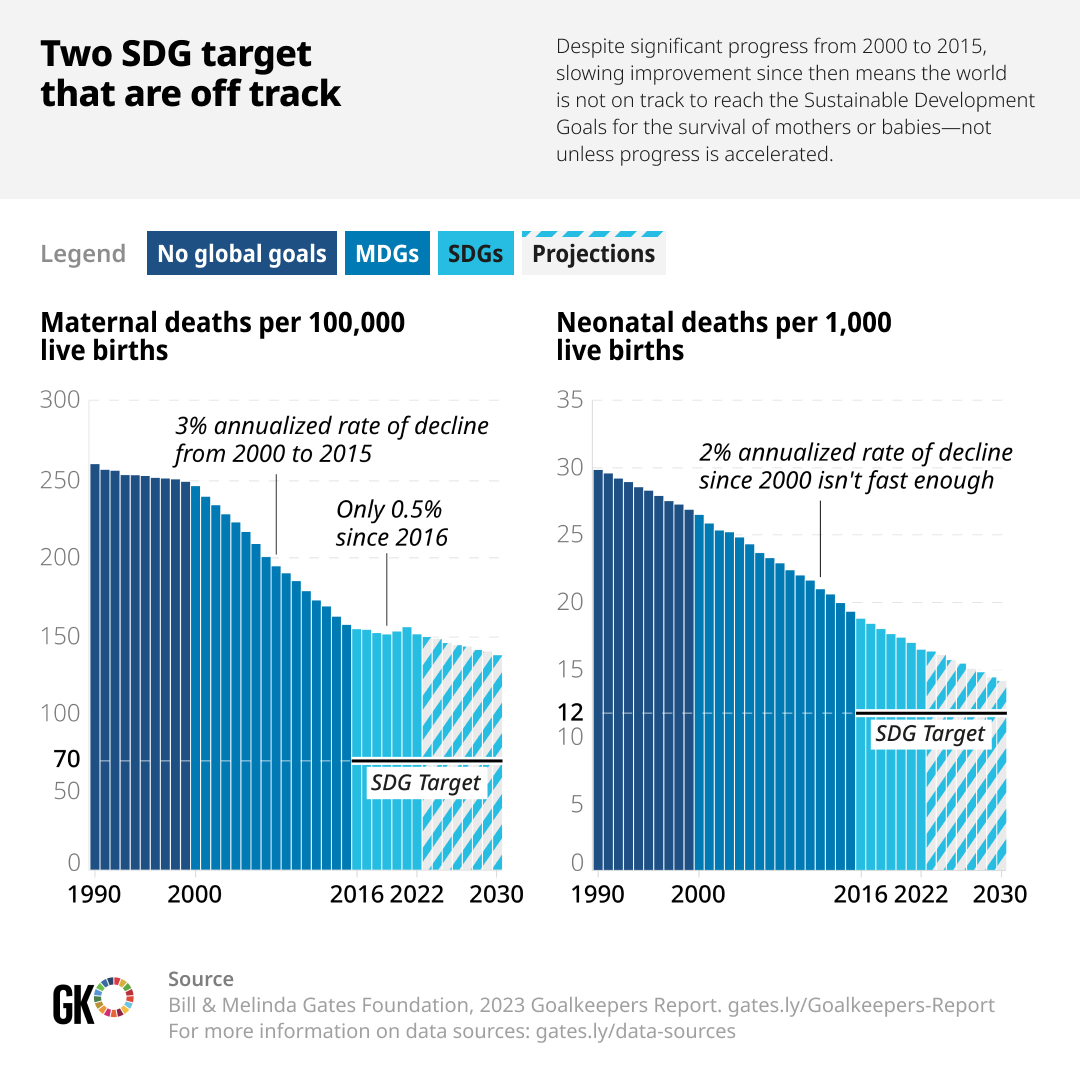
Innovation Offers Hope
But amidst these disheartening trends, there is hope on the horizon. Over the past decade, researchers have unearthed groundbreaking insights into maternal and child health. They have identified the exact diseases that threaten children, explored the role of anaemia in maternal health, and uncovered intricate connections between a baby’s health and that of their mother, the report says.
The challenge now lies in ensuring that these life-saving discoveries reach the communities where they are needed most. The report spotlights how these insights are being transformed into innovations and practices that can fast-track progress in maternal and neonatal health, especially in low- and middle-income countries (LMICs).
These are the innovations that could save 2 million lives before the end of this decade and 6.4 million lives by 2040.
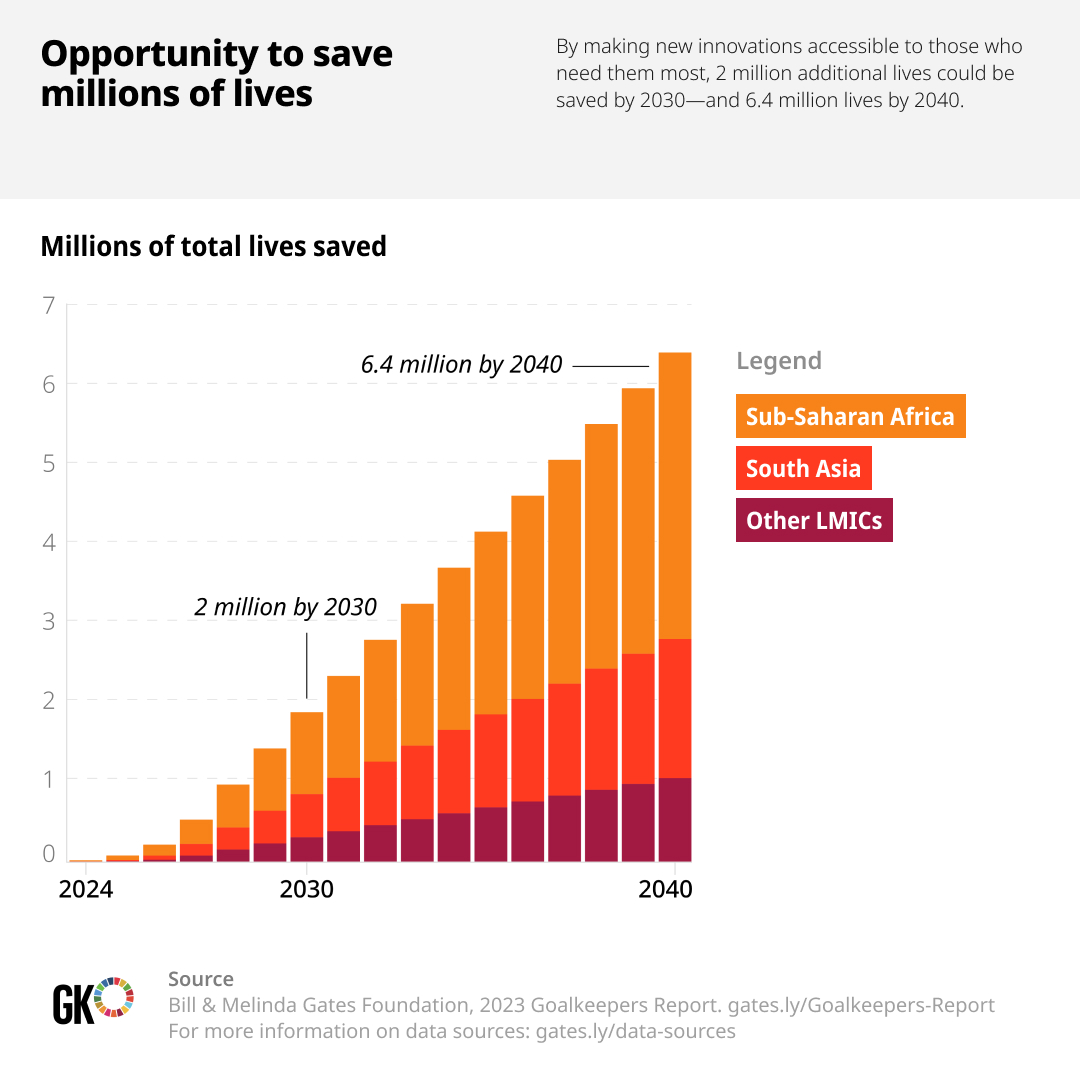
In her essay, Co-Chair Melinda French Gates highlights the new innovations that will “deliver hope”, ensuring women survive during pregnancy and childbirth. According to Gates, throughout most of human history, we lacked sufficient knowledge to prevent or treat common childbirth complications that led to fatalities, such as postpartum haemorrhage, anaemia or infection. But today, we possess crucial insights, and what is highly important is how these innovations can reach those who need them most—women in low-income countries, and marginalised communities, like Black and Indigenous women in high-income countries such as the United States, who face mortality rates three times higher than white women, even when considering economic and education factors.
Treating Postpartum Haemorrhage
According to the World Health Organisation (WHO), Postpartum haemorrhage (PPH) – loss of more than half a litre of blood within 24 hours of childbirth, affects 14 million women yearly, and kills 70,000 of them. A critical challenge is diagnosing PPH accurately, as healthcare workers often struggle to determine the extent of blood loss. A low-cost solution is a calibrated obstetric drape, resembling a V-shaped plastic bag, which visually indicates excessive blood loss, enabling swift action. According to Gates, Dr. Hadiza Galadanci, an obstetrician and researcher from Nigeria, and a team of other researchers in four African countries with high maternal mortality, came up with a solution after finding out that about half of the women who experience PPH were never diagnosed at all. The built a V-shaped plastic bag draped at the bedside of mothers after childbirth. Blood collects in it like a rising thermometer, alerting healthcare providers in a busy hospital ward if there’s any need for concern. Combining this with streamlined interventions decreased severe bleeding cases by an astonishing 60 percent.
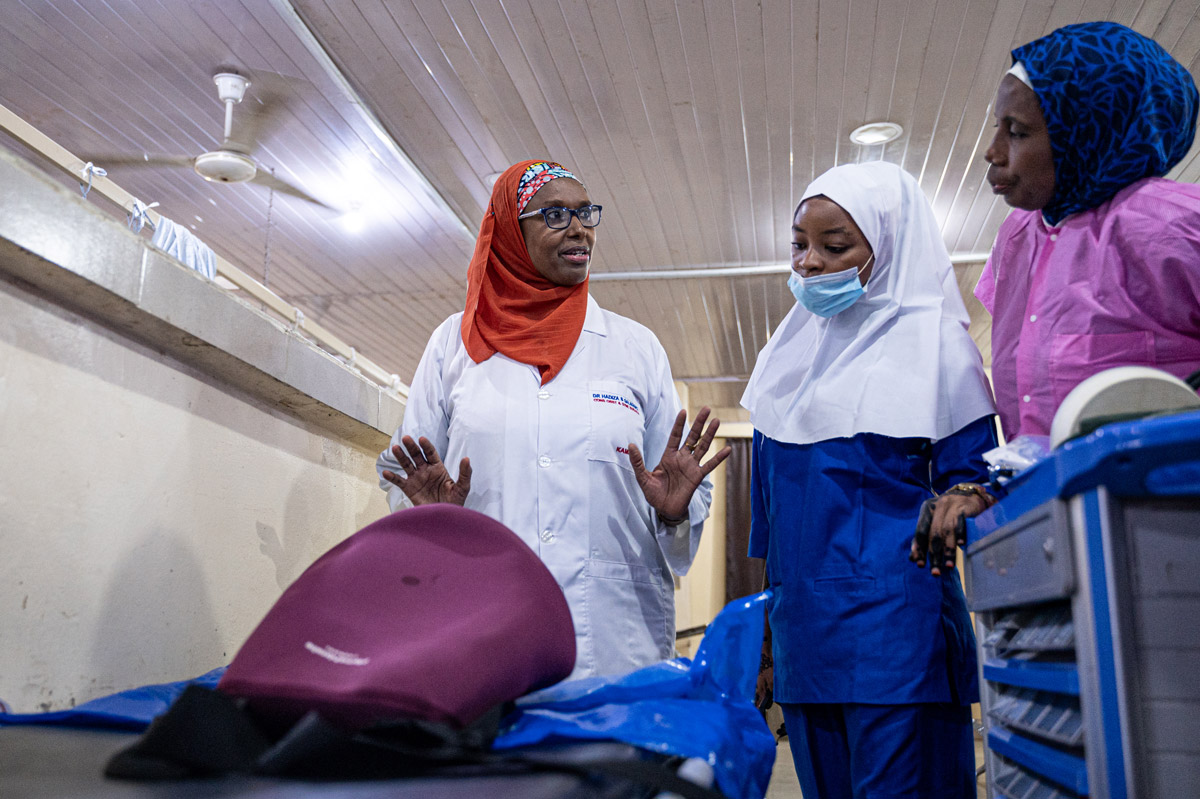
Dr. Galadanci reviewing the postpartum haemorrhage bundle with health workers, in Nigeria.
© Nelson Owoicho
Addressing Anaemia and Preventing Port-partun Haemorrhage
According to the report, anaemia affects up to 37 percent of pregnant women globally, exacerbating the risk of PPH. Maternal micronutrient supplements, including iron-rich prenatal vitamins, can prevent mild anaemia. However, diagnosing and treating moderate and severe cases are vital. A promising intervention by a Nigerian obstetrician and researcher Dr. Bosede Afolabi, is a 15-minute intravenous (IV) infusion of iron, a game-changer for severe anaemia cases, offering quick and effective treatment.
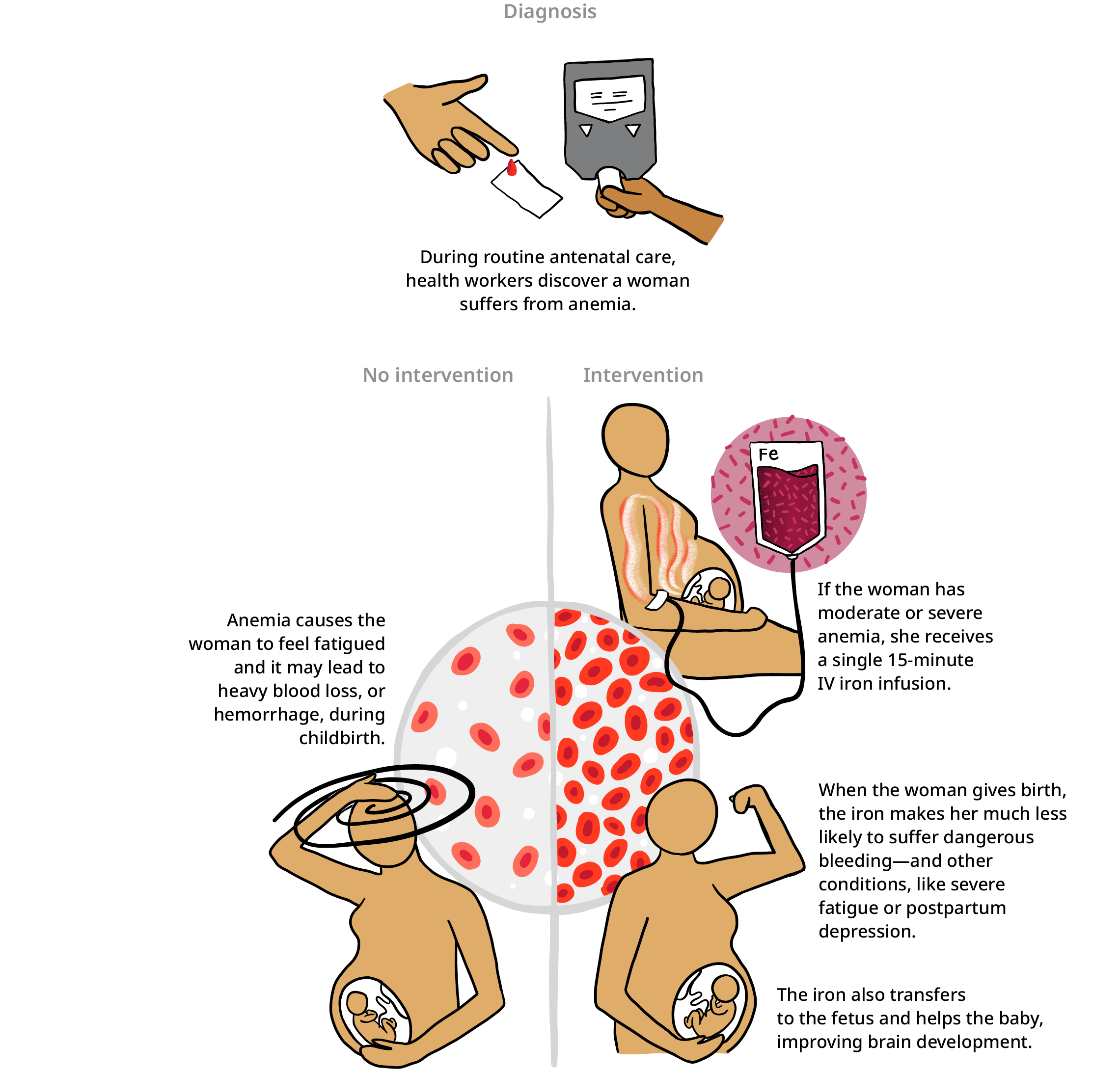
Preventing Infection
Infections leading to sepsis pose a significant threat. Azithromycin, a common antibiotic, has shown promise in preventing maternal infections when administered during labour. Trials in sub-Saharan Africa reduced sepsis cases by a third, which could be transformative, particularly for home births. In the United States, where sepsis contributes to 23 percent of maternal deaths, this innovation could be a game-changer, especially for Black and Indigenous women.
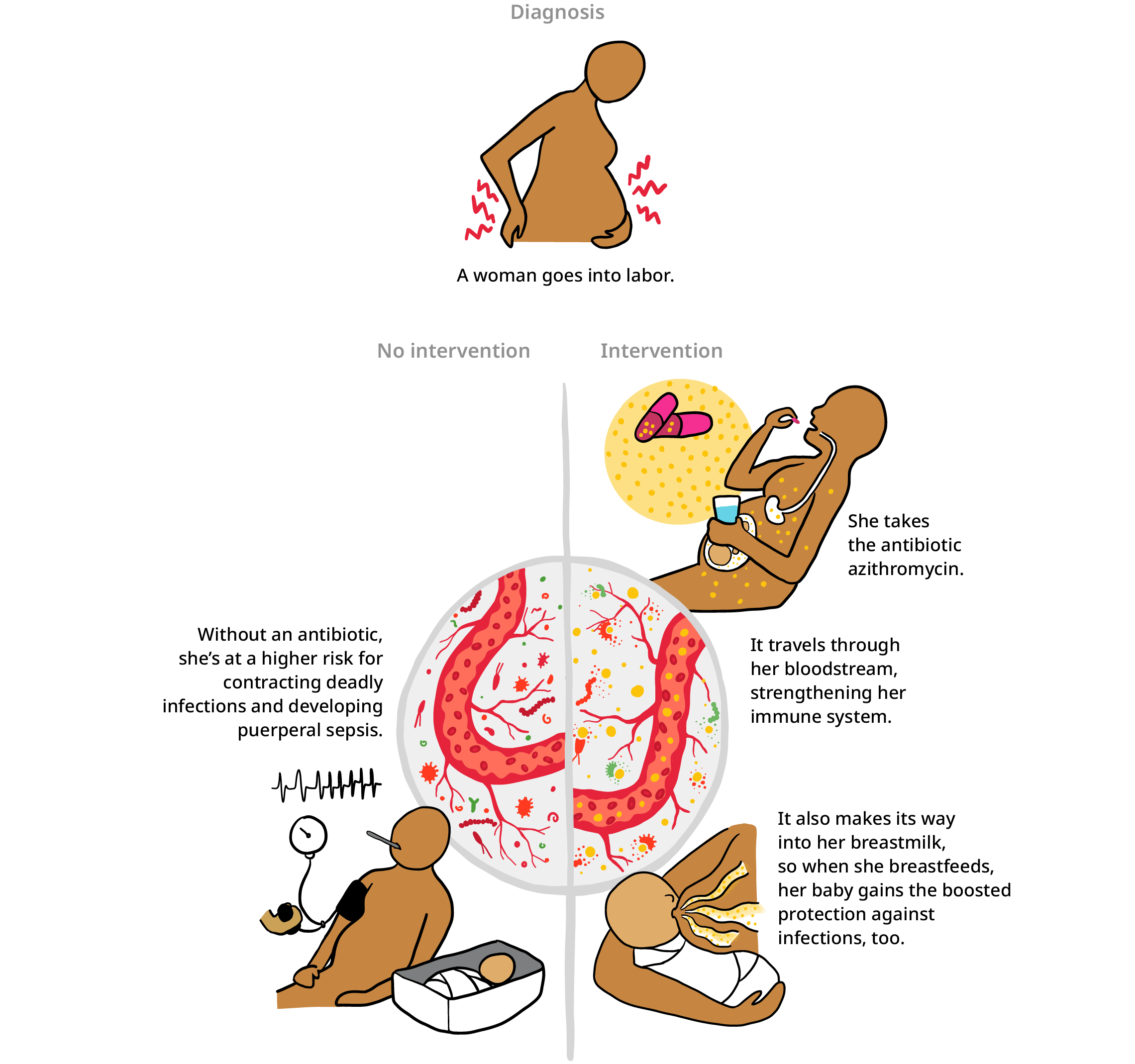
In his essay, Co-Chair Bill Gates discusses why gaining more knowledge on why children in some of the poorest places in the world die, could provide ways to save millions of others. He discusses the Child Health and Mortality Prevention Surveillance (CHAMPS), an initiative of the Gates Foundation launched in 2015. Gates discloses how CHAMPS, together with Pneumonia Etiology Research Child Health Study (PERCH), which examined the causes of childhood pneumonia, and Global Enteric Multicenter Study (GEMS) which did the same for diarrheal diseases have contributed to gaining “baby knowledge”.
One significant outcome of this knowledge boom is the precise understanding of when and why some infants and children are succumbing to various ailments, enabling medical professionals to devise better treatments and develop vaccines.
Antenatal Corticosteroids (ACS) to Fast-forward Lung Growth
These innovative treatments “fast-forward” lung growth in premature babies, helping them breathe more effectively. Administered to expectant mothers at risk of preterm birth, ACS exercises the foetus’s lungs, accelerating their maturation in just a few days. The use of ACS could potentially save the lives of 144,000 infants in sub-Saharan Africa and South Asia by 2030, and nearly 400,000 by 2040, according to Gates Foundation’s projection.
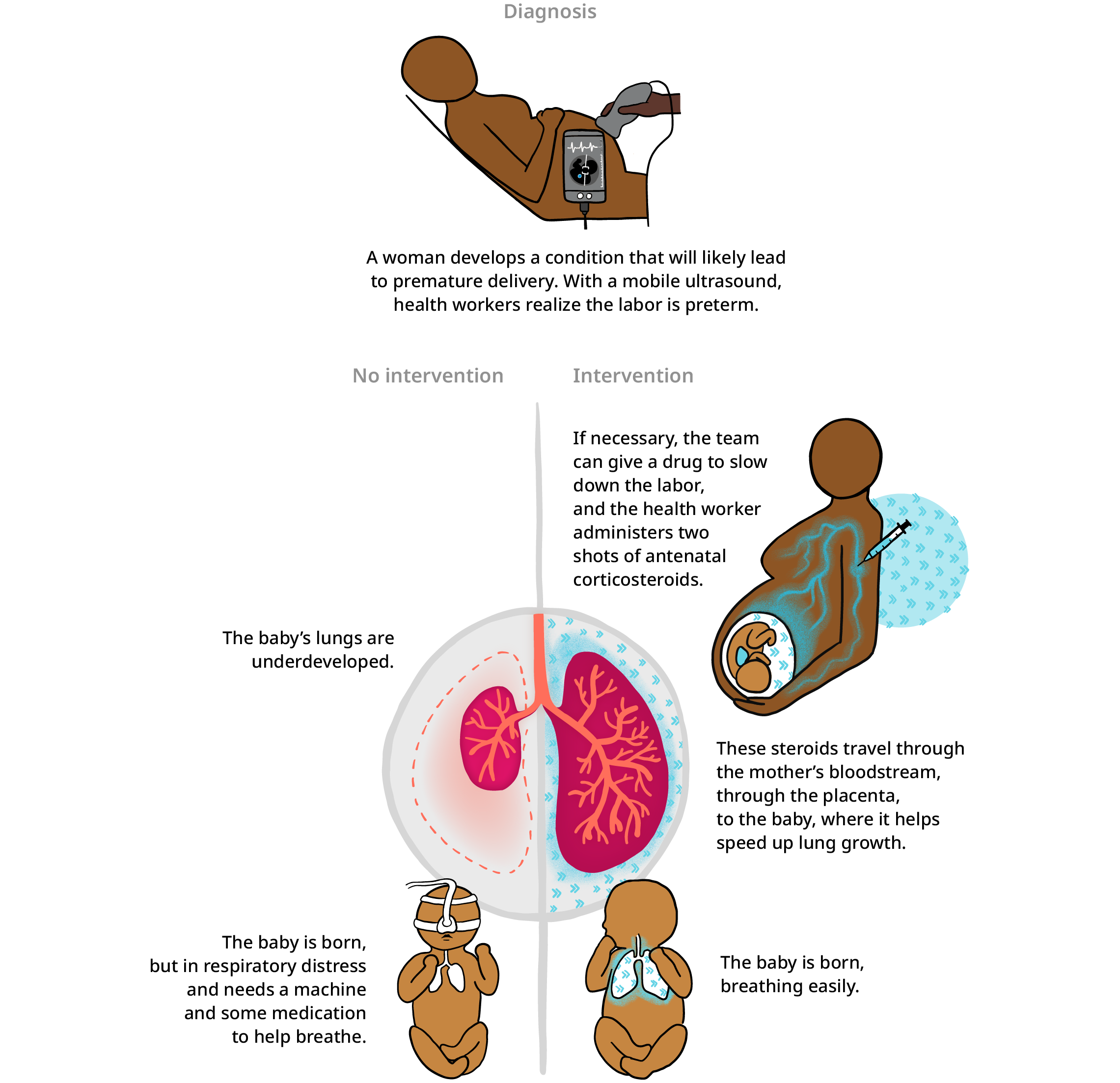
Detailed Pathological Analysis
Initiatives like CHAMPS bring together doctors and pathologists who meticulously analyse cases to understand the chain reaction of events leading to a person’s death. Death rarely results from a single cause; instead, it is a complex interplay of factors. For instance, a child dying from pneumonia may have been born prematurely or malnourished, revealing that the first link in the causal chain is often malnutrition.
B. infantis to Improve Baby’s Gut Microbiome
Our comprehension of the microbiome, the ecosystem of bacteria within our digestive tracts, has surged in recent years. Breast milk, once viewed solely as newborn nutrition, is now recognised as nourishment for the gut bacteria, especially bifidobacteria, residing in a baby’s digestive system. These bacteria process specific sugars in breast milk into vital nutrients. As a result, doctors recommend probiotic supplements containing bifidobacteria, tailored to a baby’s specific bacterial makeup, swabbed from their stool. Moreover, studies indicate that maternal and baby microbiomes are interconnected, enabling the transfer of healthy gut bacteria from mother to child during pregnancy. This groundbreaking research underscores the importance of maternal nutrition in fostering a healthy infant microbiome.
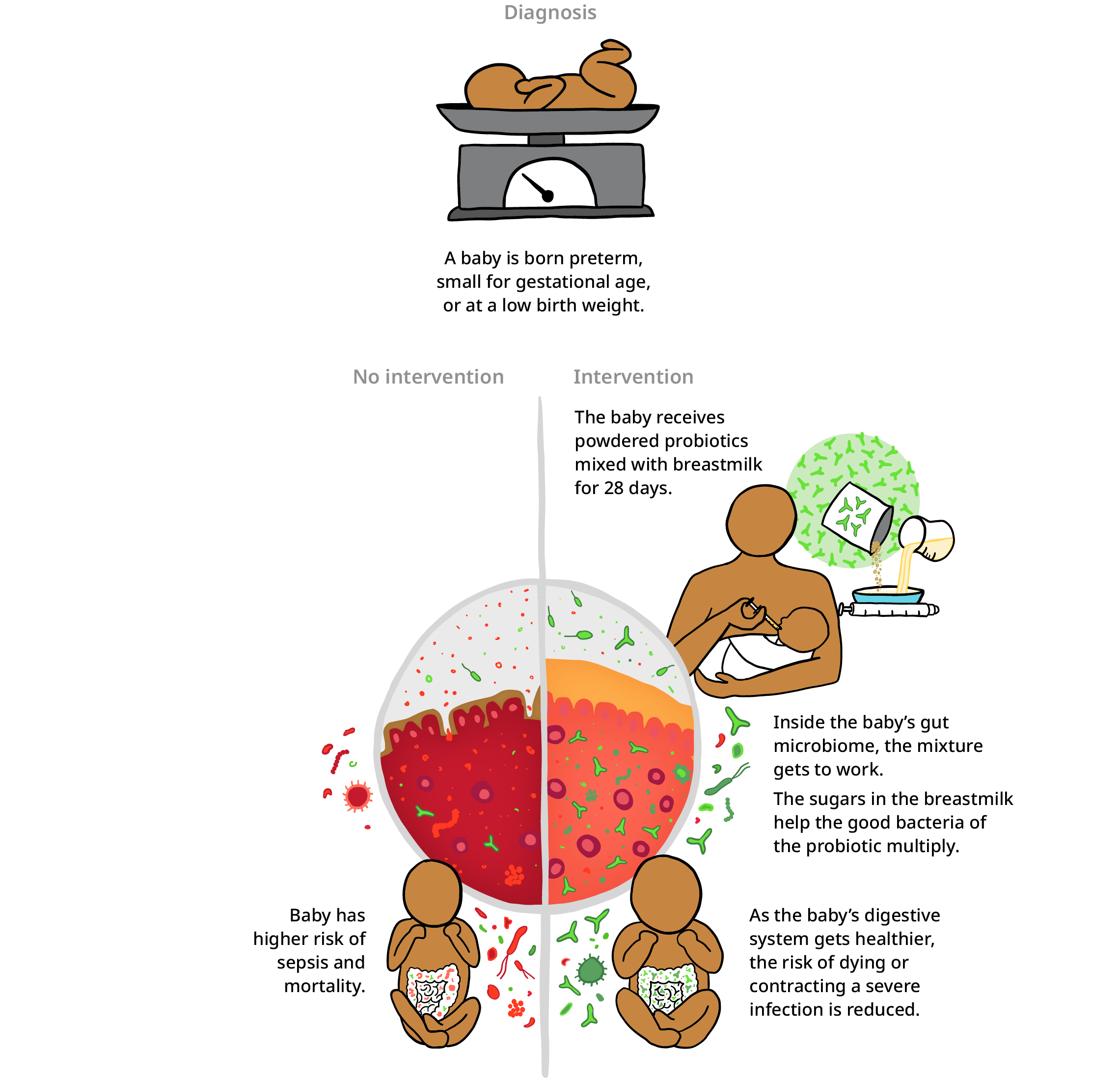
Melinda French Gates and Bill Gates’ Final Word
“If there’s one thing you take away from this report, we hope it’s hope itself—the belief that the world can save the lives of 1,000 more mothers and babies every day through the end of the decade. But you should also know: It’s not a done deal…. We need policy changes, political will, more investment into women’s health, and health care workers—including midwives. We need to listen to what women want and ensure that women have a say in their own health care.”
You can access the full report HERE.
Photo Credit: Gates Foundation | Nelson Owoicho




















